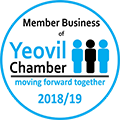 Remember that old James Bond film, The Spy Who Loves Me? In it, Roger Moore’s Bond is tasked with recovering stolen plans for a highly advanced submarine tracking system – plans that are contained within a roll of microfilm.
Remember that old James Bond film, The Spy Who Loves Me? In it, Roger Moore’s Bond is tasked with recovering stolen plans for a highly advanced submarine tracking system – plans that are contained within a roll of microfilm.
Incredibly, it’s been 40 years since that film came out (yes, we feel old too). But despite the technological advances of the last four decades, microfilm is as relevant today is ever. Likewise microfiche – which brings to mind images of Jessica Fletcher hunting through the Cabot Cove records in search of a clue – is still being used in organisations up and down the country.
(In case you’re wondering, the main difference between the two is that microfiche is formatted as a flat card of negatives rather than a roll. In both cases, a backlit reader is used to view the images – although these days you can also view microfiche and microfilm digitally using special software.)
Why microfilm and microfiche still matters
The main benefit of microfiche and microfilm is that they can turn very large documents into very small images. Which makes them particularly useful for companies with lots of large format documents such as architects, engineers and hospitals. They’re also a great way of accessing rare or fragile documents that shouldn’t be handled without proper care.
And that’s just the start. Converting your documents to microfiche or microfilm has loads of business benefits, allowing you to:
- Create secure backups of important documents (guaranteed for 500 years!)
- Free up storage space and move towards a paperless office
- Share documents easily, quickly and cost effectively
- Access critical data without having to hunt through endless archive boxes
- Reduce retrieval costs if your physical documents are stored off site
All of which can save you lots of hassle and potentially money too. Which, let’s face it, is what we’re all aiming for, right?
Specialists in microfilm and microfiche conversion
At Scan Film or Store, we’ve been working with microfilm and microfiche for longer than we care to admit.
That’s why we can offer such a wide range of services around microfiche, microfilm and related media, including:
- Digitising microfilm and microfiche (oh, and aperture cards too, if you’ve got some of those)
- Converting photographic images into a range of popular electronic formats such as .pdf, .pdf/a, .jpg and .tif
- Producing printed hard copies of microfilm, microfiche and aperture cards (we can even supply Diazo microfiche copies of microfilm, if you can get your head around that one)
- Integrating digitised film with your existing or new document management systems
- Destroying, cataloguing, indexing, archiving and/or storing the originals, depending on your needs
Not only do we have the technical skills required to do all this, we’re also fully secure – our staff are all DBS checked with full security clearance to BS7858 standards. So you don’t need to worry about your data falling into the hands of a reclusive megalomaniac like Karl Stromberg.
If you have any microfiche or microfilm jobs you need taken care of, give us a ring and one of the team will be happy to help.
 It’s surprising how long making a decision can take. Even something simple like what to order at the local Chinese or whether you ought to wear the red or the blue tie for that client meeting tomorrow.
It’s surprising how long making a decision can take. Even something simple like what to order at the local Chinese or whether you ought to wear the red or the blue tie for that client meeting tomorrow.






